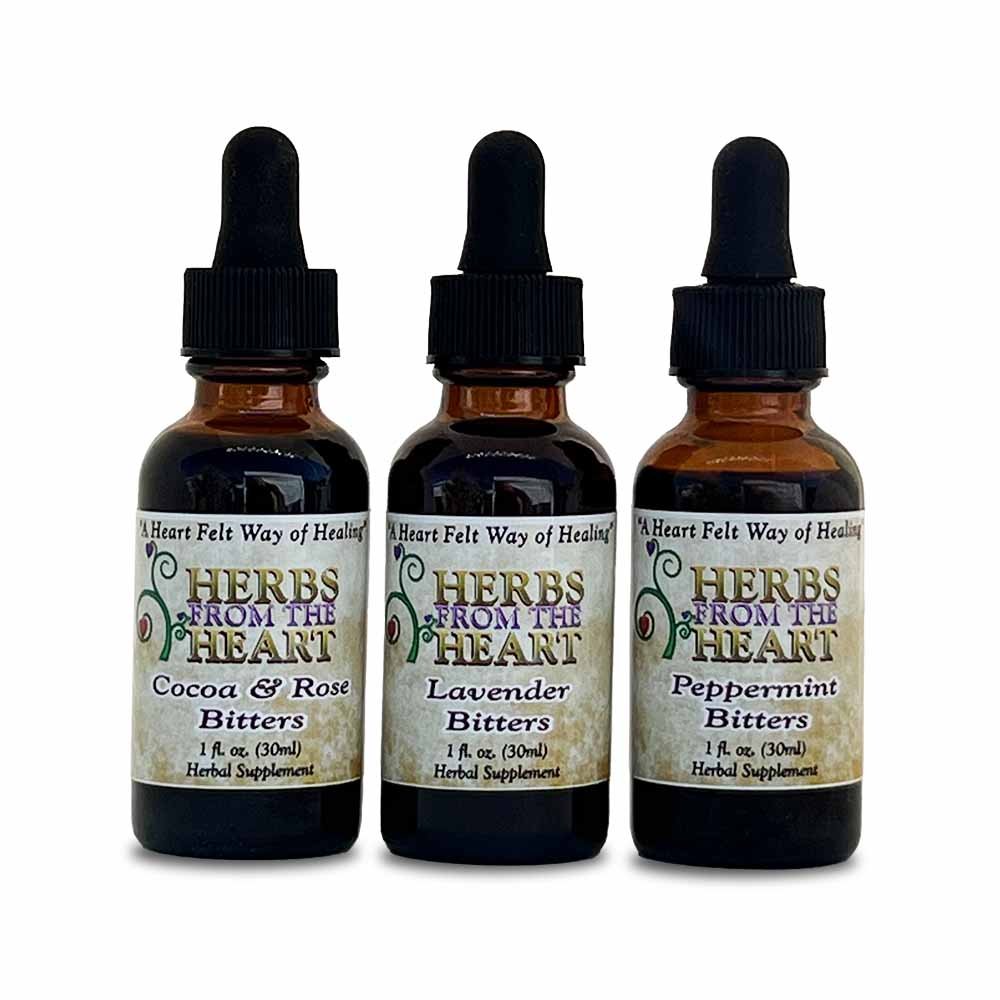Spicing up the Kitchen: Simple Ways to Introduce More Herbs at Meal Time
As we take the first step in discussing the role of herbs in our lives, we feel the best place to start would be the kitchen. After all, it’s one of the earliest and simplest places we tend to begin learning about herbs. It’s also a place where we have some of our fondest memories surrounded by the people and foods that we love.
The benefits of bringing more herbs into our meals are more than I could list here, but I’ll share a few.
We sometimes forget that herbs are in fact PLANTS! So just like our fruit and vegetable friends, they have inherent health benefits: vitamins, minerals, antioxidants, and some remarkable nourishing and healing properties.
Fun!
Look, it’s intimidating to try new things- I get it. But we’re not talking about skydiving or swimming with the sharks here. We’re just talking about grabbing things from the grocery store or garden:
Cilantro, dill, rosemary, parsley, basil, ginger, or fennel. You got this!
A great place to try them?
In your scrambled eggs or:
In a broth or soup
With a protein like chicken
Tacos or stir fry
Even in a dip
What’s the worst that can happen? If it’s not good, you cover it in hot sauce (always a great backup, right? And ideally, it’s also made up of herbs!).
Benefits your digestion
Many centuries ago spices were sought after for masking taste. However, the craftier cooks would also utilize herbs to aid the body’s digestion with those tough meats and foods that people were eating during their travels. I could go into a deep and rich history here, but we’ll save that for another time.
So let’s dive into ways you can use more herbs to support yourself in the before during, and after phases of meal time.
Before
One of the biggest reasons people experience GI discomfort (such as gas, bloating, or indigestion) is because food gets consumed before there was ever a signal sent to the body that food is on the way!
Enter one of my favorite herbal creations, bitters. Bitters support the body in better creating its own enzymes, and in carrying out the digestive processes more effectively. They’re best taken roughly 15 minutes prior to a meal, so when you then begin eating your meal your body is prepared (and so happy) to receive it.
Here’s a look at some wonderful bitters created by Andrea at Herbs from the Heart. There are several different flavors and formulations that act a bit differently in the body, while also appealing to the different tastes that we each have.
During
There’s some simple ways to bring in additional nourishment without sacrificing flavor or adding much more work. Take a look at this wonderful broth recipe, for example:
BROTH RECIPE
A broth like this is nutritious, tasty, and also great for gut health. How is it best used? In place of water- when making rice, pasta, a stir fry, or boiling any type of vegetables!
The “during” is when the real EXPERIENCE takes place. Honor your meal and yourself by taking a few breaths before the meal, during (by taking a little pause), and after. Your body will thank you, and you also might notice some new subtleties in the flavors of your meal.
With this, know that chewing your food is a real part of digestion. Confession time: I actually chew my smoothies. Why? Beyond being my highly unique self, I know that the act of chewing releases digestive enzymes in the mouth, even if your teeth aren’t breaking down something. It makes a MASSIVE difference in your digestion. Try it! And don’t worry if people do look at you strangely, they already do anyway (I’m kidding, I’M KIDDING!).
After
Ok, aspiring kitchen witches & wizards: you took your bitters, you chewed your food just like your mom always told you to, you ate slowly… but the meal you prepared was so good and now you’re stuffed and uncomfortable. Ugh. You’ll do better next time. You’re not alone; so many people experience discomfort, especially after larger meals.
Some of the other reasons people end up with GI discomfort after a meal:
Poor food quality (we all know this one though)
Drinking too much liquid during meals
Eating too quickly
Over-stimulation while eating
One way to combat this is to prepare tea while preparing your meal, to sip on post-meal.
Here’s a wonderful one to have after a meal that has a combination for aiding digestion and calming discomfort:
Or if you’re without a blend like this, a simple Ginger tea can be nice.
Aromas are an incredible helper for meals. The smell of tea can calm your mind while also getting your digestion flowing more regularly.
We’re told to take time away from work or distraction for our meals, and it’s because digestion requires energy. The more relaxed we are and the less distractions going on, the less functions the body has to focus on at once. Taking a few minutes to do something relaxing after you eat- sitting outside with a cup of tea, reading a book, or meditating for a few minutes- can not only put you in a relaxed mood but can completely reset your digestion- especially if you get into the habit of doing it every day.
Thank you for enjoying this imaginary meal with me. Please, go eat something now. And remember: prepare for it, ENJOY it, and take time to be with your food and yourself while you do. Sending love.
This article is for educational purposes only. Our articles have not been evaluated by the FDA and our products are not claiming to diagnose, treat, cure, or prevent any disease.
About the Author
Tim Peters is the Founder of Mind Body Business and a Certified Herbalist. He provides 1-on-1 business coaching plus writing and copy editing for health professionals. If you want to connect or learn more about him:
Tim@mind-bodybusiness.com
www.mind-bodybusiness.com
Let's connect on IG





